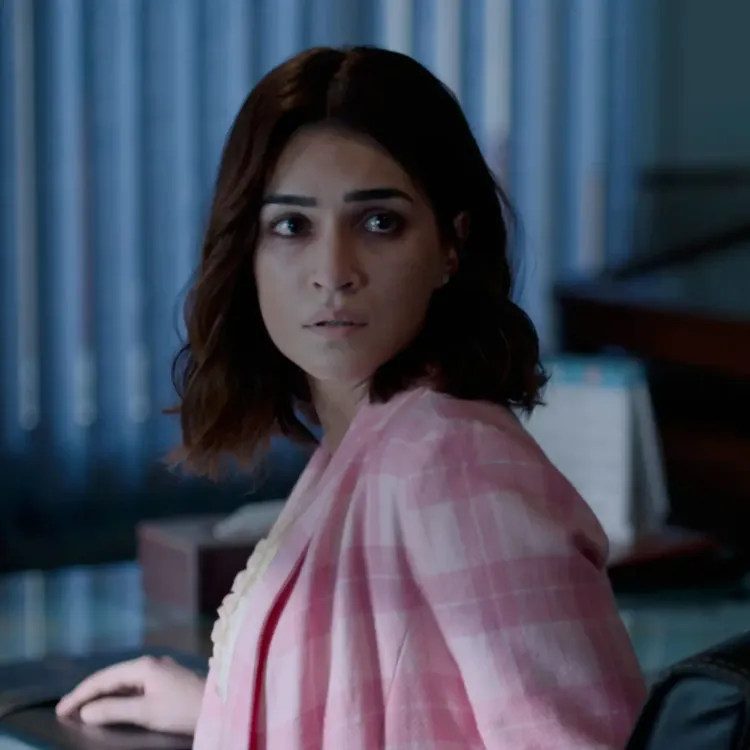What Did Dhanush Say About His Synergy with Kriti Sanon in ‘Tere Ishk Mein’?

Synopsis
Key Takeaways
- Dhanush and Kriti Sanon share a strong creative synergy.
- Kriti's character Mukti embodies innocence and a belief in goodness.
- The film explores the evolution of love over time.
- Directed by Aanand L, it's set to release on November 28.
- The collaboration aims to deliver a compelling cinematic experience.
Mumbai, Nov 15 (NationPress) Actor Dhanush has shared insights into his collaboration with Kriti Sanon for the upcoming film “Tere Ishk Mein.”
During the trailer launch, he highlighted the wonderful creative partnership they fostered while working together. Dhanush expressed that they co-developed their characters, describing Kriti as a “talented, beautiful, and dedicated” co-star, and regarded their collaboration as one of the most rewarding experiences of the film. He remarked, “I genuinely believe we’ve crafted a beautiful film, and my experience with such a talented co-star was remarkable. Creating the characters of Shankar and Mukti felt like a shared journey, and it was truly fulfilling.”
Kriti Sanon elaborated on her character, Mukti, and explained how she resonated with various aspects of the role. “There are certain elements that I connect with, although many actions of Mukti are things I wouldn’t do. Initially, she embodies a certain purity, almost naivety.”
“She has faith in goodness, believing in the inherent goodness of others, even when it’s not visible to everyone. When she says she can make someone a non-violent person, she truly believes that the world and people can change, and that there is some goodness in everyone. I find that part relatable,” the actress mentioned.
In related news, “Tere Ishk Mein,” directed by Aanand L, is set to premiere globally in both Hindi and Tamil on November 28. The filmmaker revealed that the concept for the film emerged from an “unfinished thought.” He and Dhanush have been revisiting the idea to explore what happens to love as innocence diminishes and time alters individuals. “Tere Ishk Mein” ultimately developed from that lingering, unfinished thought.









